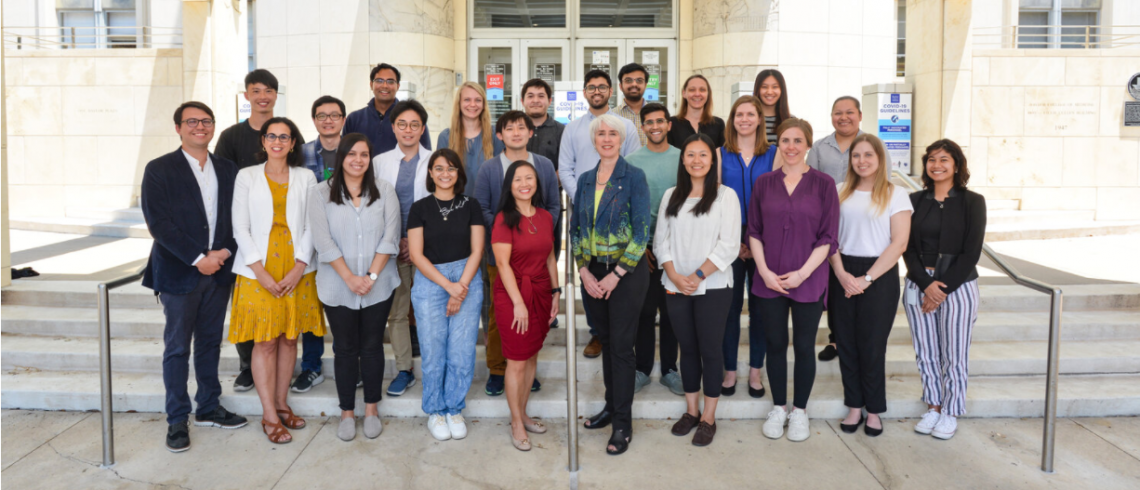
About the Lab
The focus of the Goodell Lab is the basic mechanisms that regulate hematopoietic stem cells, and how their misregulation leads to leukemia development. Stem cells reside in the bone marrow in a quiescent state, but rapidly become activated to regenerate the hematopoietic system. We are studying several genes involved in different aspects of stem cell activation, including some that transduce initial signals, and others that regulate self-renewal and differentiation.
This work has led us to study the effects of stress, such as infection or age, on hematopoietic stem cells, using gene expression profiling to examine the changes that occur in mouse stem cells over time. We are also studying the role of epigenetic modifications, such as DNA methylation, on hematopoietic stem cell (HSC) function and biology. In particular, the lab is investigating the role of DNA methyltransferase 3a (DNMT3A) in regulating stem cell function, and how mutations in DNMT3A lead to age-related clonal hematopoiesis and development of hematologic malignancies.
 Credit
Credit
PPM1D Mutations Drive Clonal Hematopoiesis in Response to Cytotoxic Chemotherapy.
Cytotoxic chemotherapies put patients at risk for future hematopoietic malignancies. Goodell et al. show that PPM1D mutations confer a survival advantage onto hematopoietic clones by rendering them resistant to DNA-damaging agents such as cisplatin. Selective pressures will be specific to different mutations and should be considered in choice of chemotherapy.
Lab Director
View Dr. Margaret Goodell's bio for information about research interests.









